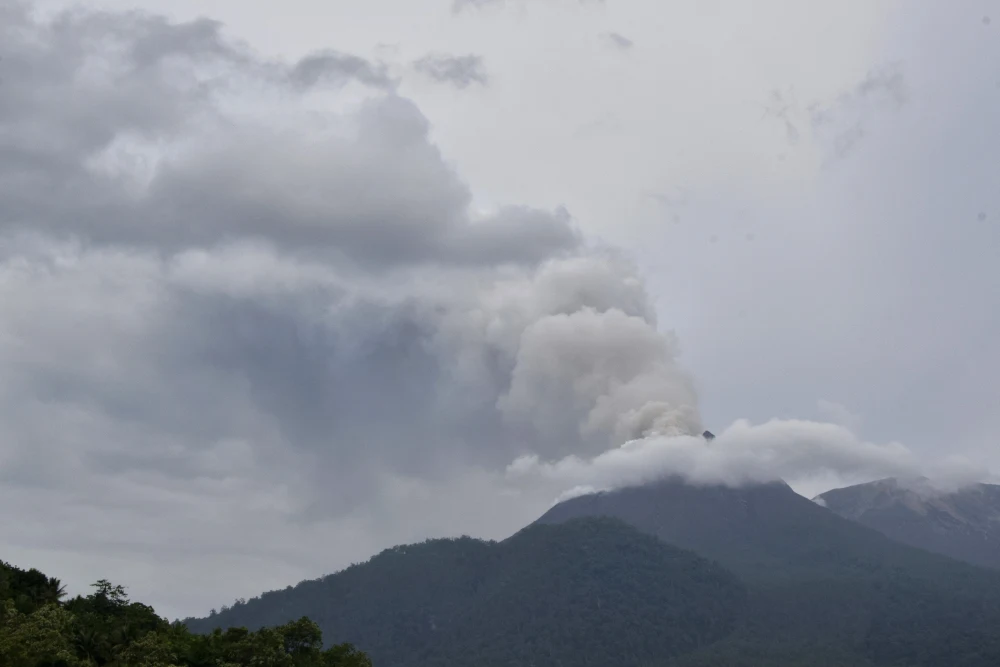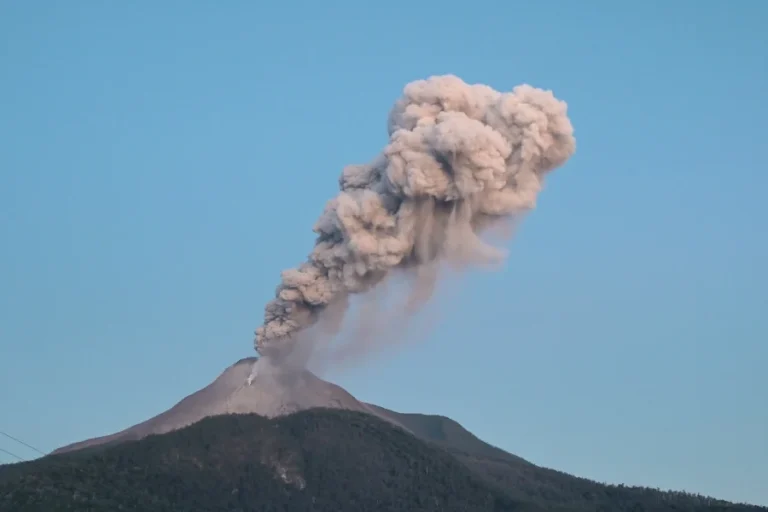JAKARTA, Indonesia — Mount Lewotobi Laki-Laki erupted on Sunday, resulting in the deaths of at least nine people. The eruption released explosive plumes of lava, prompting authorities to evacuate several nearby villages, officials reported on Monday.
The volcano, located on Flores Island in East Nusa Tenggara province, erupted at 11:57 p.m. local time (11:57 a.m. ET). Hadi Wijaya, a spokesperson for the Center of Volcanology and Geological Hazard Mitigation, described the event, stating that the eruption belched a fiery red column of lava, volcanic ash, and incandescent rocks.
“After the eruption, power outages occurred, followed by heavy rain and significant lightning that caused panic among residents,” he explained. He added that authorities raised the volcano’s alert status to level IV, the highest possible.

In response to the eruption, the agency recommended clearing a radius of over four miles from the volcano. Fiery lava and rocks struck settlements about two miles from the crater, causing significant damage to residents’ homes. Heronimus Lamawuran, a local official in the East Flores area, confirmed that the eruption had affected seven villages and resulted in at least nine fatalities as of Monday morning.
“We began evacuating residents early this morning to other villages located about 13 miles from the crater,” he stated. By Monday morning, thick volcanic ash covered the nearest villages, and authorities continued to collect data on the number of evacuees and the extent of property damage.
Indonesia sits on the “Pacific Ring of Fire,” a region known for its high seismic activity due to multiple tectonic plates. This eruption follows a series of volcanic events in the country. In May, Mount Ibu, located on the remote island of Halmahera, prompted the evacuation of residents from seven villages.
In the spring, North Sulawesi’s Ruang volcano also erupted, leading authorities to evacuate more than 12,000 people. Last December, an unexpected eruption at Mount Marapi in West Sumatra province resulted in the tragic deaths of two dozen climbers who were ascending the nearly 9,480-foot mountain.
As the authorities work to manage the aftermath of the Lewotobi Laki-Laki eruption, they focus on providing assistance to affected communities. Evacuation efforts continue as officials prioritize the safety of residents. The region’s vulnerability to volcanic activity underscores the need for ongoing monitoring and preparedness.
Local officials emphasize the importance of emergency plans and community awareness to mitigate the impact of future eruptions. As the volcanic activity subsides, the region will likely face challenges related to recovery and rebuilding.
Indonesia’s geological complexity demands constant vigilance, as the nation remains one of the most volcanically active in the world. The recent eruption of Mount Lewotobi Laki-Laki serves as a stark reminder of nature’s power and the need for comprehensive disaster response strategies.

